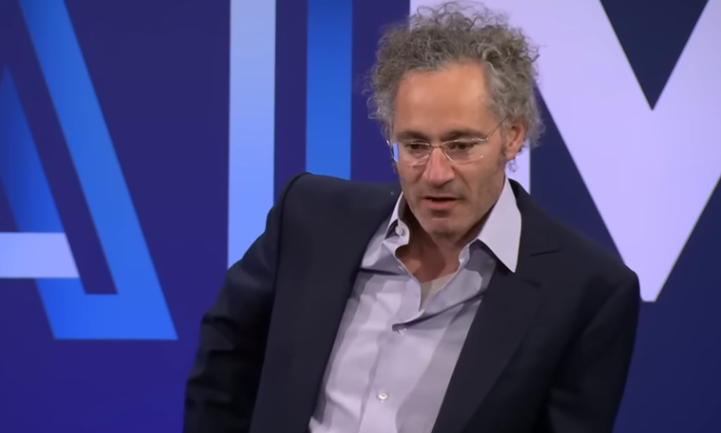 BIG DATA
BIG DATA
 BIG DATA
BIG DATA
 BIG DATA
BIG DATA
Data analytics software provider Palantir Technologies Inc. delivered earnings and revenue that exactly matched Wall Street’s expectations today.
It also offered strong guidance and announced a new $1 billion share buyback plan, sending its stock up slightly in extended trading.
The company reported second-quarter net income of $28 million, up from a loss of $179.3 million a year earlier. It’s the third successive quarter in which Palantir has shown increased profitability.
It also posted earnings before certain costs such as stock compensation of five cents per share, in line with consensus estimates. Revenue rose 13% from a year earlier to $473 million, also in line with analyst’s targets.
For the third quarter, Palantir sees revenue of between $553 million and $557 million, ahead of Wall Street’s $552 million consensus estimate. The midpoint of its range implies revenue growth of 16%, which would represent a sequential acceleration following three quarters of gradually declining sales. In addition, It’s raising its full-year revenue forecast to $2.212 billion, ahead of Wall Street’s call for $2.209 billion.
Palantir’s stock was down 1% prior to the report, only to turn it around and gain more than 2% in extended trading.
Chief Executive Alex Karp (pictured) said in a letter to shareholders that the company anticipates becoming eligible for inclusion in the S&P 500 after it reports its third-quarter results in early November. “At that point, we will have been profitable on a cumulative basis over the preceding four quarters,” he pointed out.
The company was founded back in 2003 by well-known technology investor Peter Thiel, along with Joe Lonsdale and Karp. It sells data analytics software and services, primarily to government agencies, including the Defense Department, the U.S. Food and Drug Administration and several intelligence agencies.
During the quarter, government revenue came to $302 million, up 15%, accounting for 57% of the company’s total sales. Commercial revenue, which comes from sales of its software to enterprises rather than government agencies, rose 10% to $232 million.
Holger Mueller of Constellation Research Inc. told SiliconANGLE that Palantir’s profitability is a result of good cost control exercised by the company. “The year-over-year reduction in expenses provided the bulk of the profit during the quarter,” he said. “Palantir did well to find savings of almost $200 million, swinging from a loss of $170 million a year earlier to almost $30 million of profit. It’s going in a direction that both customers and investors like, and they’ll be hoping for more of the same in Q3.”
Palantir announced a big government customer win during the quarter, signing a contract with the U.S. Special Operations Command that could be worth up to $463 million.
According to Karp, Palantir has a big opportunity to grow its business by helping its customers to commercialize artificial intelligence. “I believe this transformation will change the GDP of America and that Palantir will participate in that in the delta between where the GDP is now and where it will get to, powered by unique technologies that are almost exclusively being built in the United States and are being adopted more rapidly, more efficiently with more vigor,” he said in a briefing with analysts.
Karp stressed that Palantir is aiming to help customers make money from AI, as opposed to producing computer-generated poetry. The rise in popularity of chatbots such as OpenAI LP’s ChatGPT has proven a boon in some parts of business, but has also caused some distractions, forcing some companies to restrict their workers from using the software.
Palantir wants to change that. “We will figure out how to monetize it,” Karp said.
THANK YOU